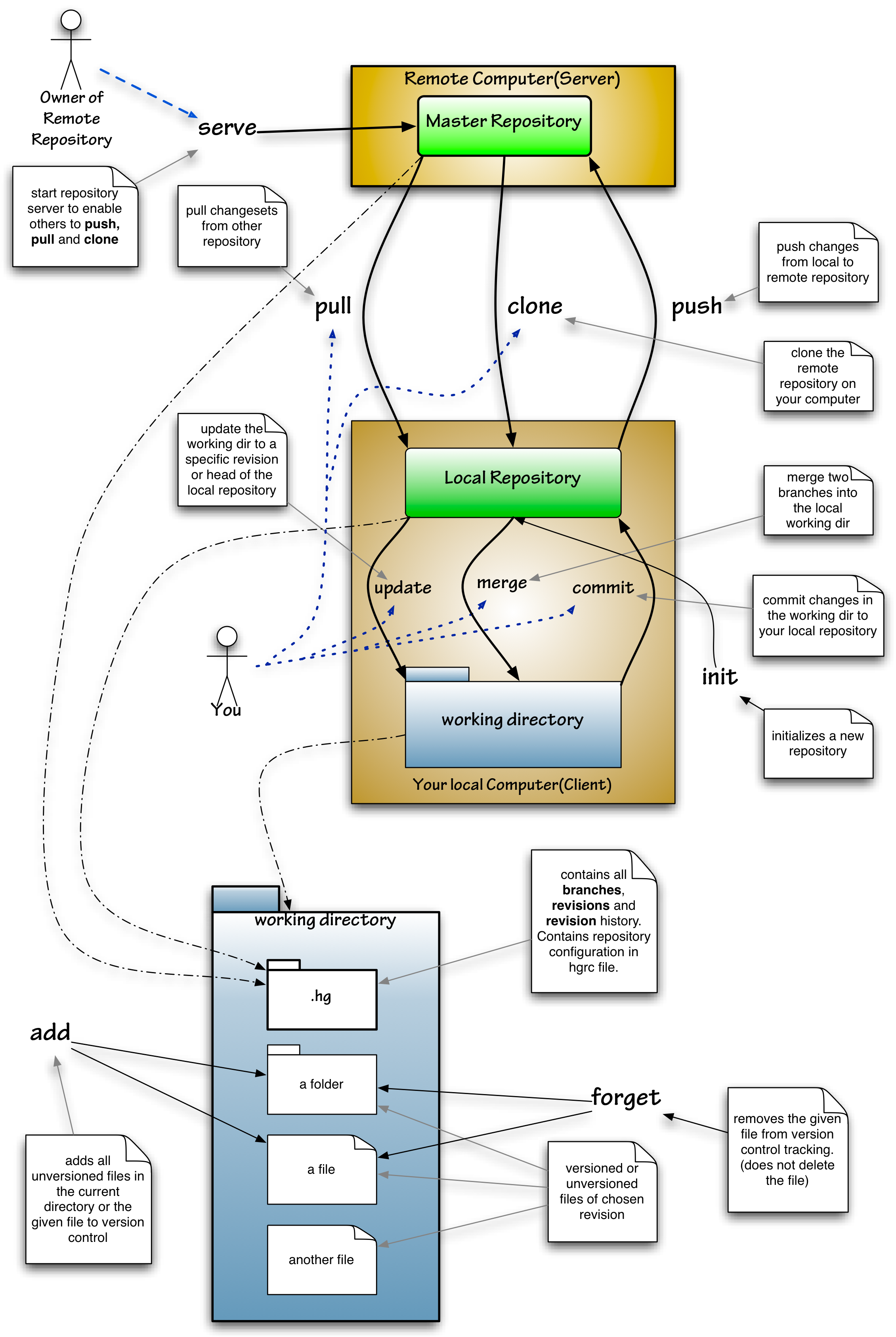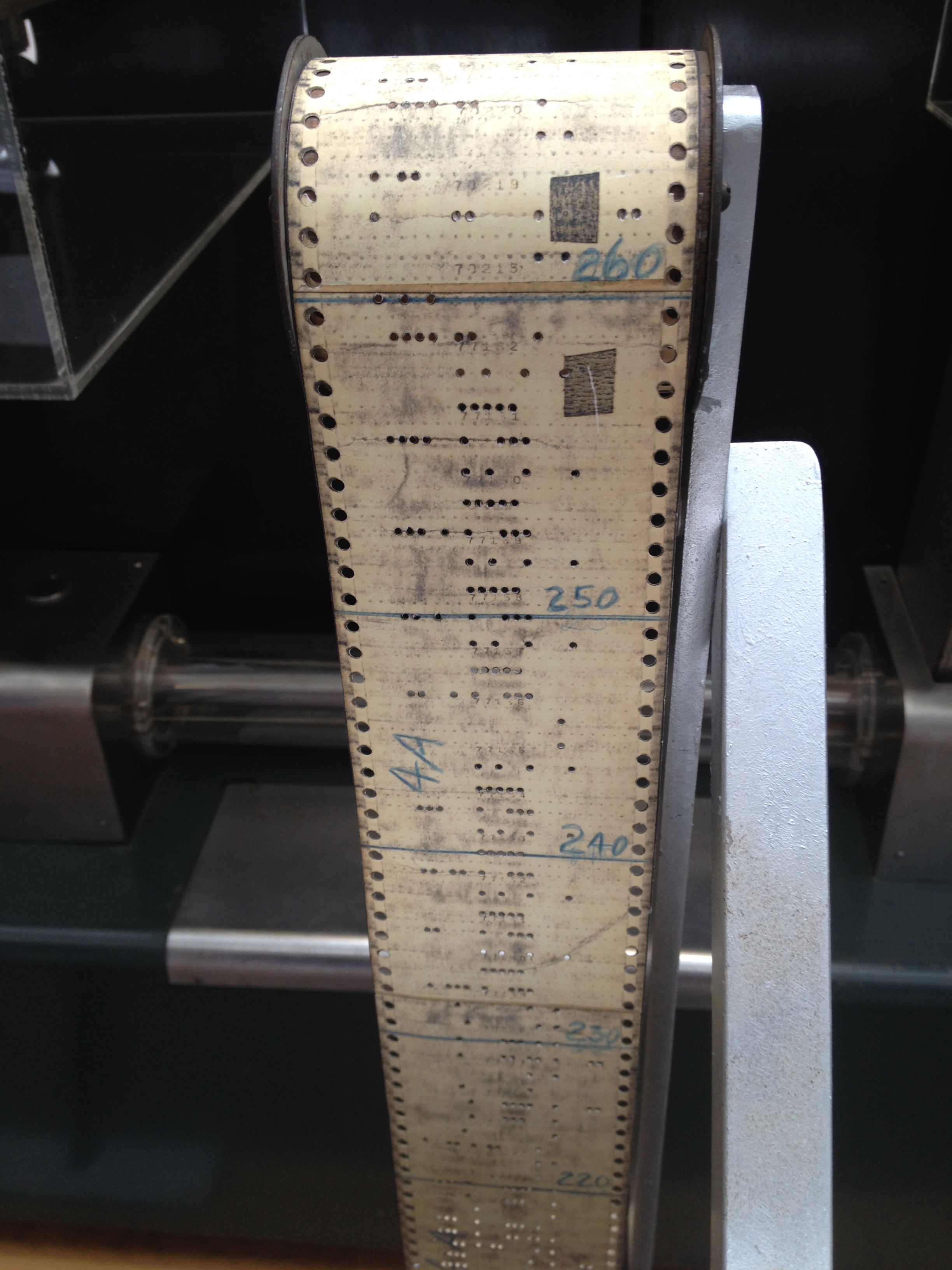|
Patch (Unix)
The computer tool patch is a Unix program that updates text files according to instructions contained in a separate file, called a ''patch file''. The patch file (also called a ''patch'' for short) is a text file that consists of a list of differences and is produced by running the related diff program with the original and updated file as arguments. Updating files with patch is often referred to as ''applying the patch'' or simply ''patching'' the files. History The original patch program was written by Larry Wall (who went on to create the Perl programming language) and posted to mod.sources (which later became comp.sources.unix) in May 1985. patch was added to XPG4, which later became POSIX. Wall's code remains the basis of "patch" programs provided in OpenBSD, FreeBSD, and schilytools. The Open Software Foundation, which merged into The Open Group, is said to have maintained a derived version. The GNU project/ FSF maintains its patch, forked from the Larry Wall version. Th ... [...More Info...] [...Related Items...] OR: [Wikipedia] [Google] [Baidu] |
Larry Wall
Larry Arnold Wall (born September 27, 1954) is an American computer programmer, linguist, and author known for creating the Perl programming language and the patch tool. Early life and education Wall grew up in Los Angeles and Bremerton, Washington. He started higher education at Seattle Pacific University in 1976, majoring in chemistry and music and later pre-medicine. After a hiatus of several years working in the university's computing center, he graduated with a bachelor's degree in Natural and Artificial Languages. While in graduate school at the University of California, Berkeley, Wall and his wife were studying linguistics with the intention of finding an unwritten language, perhaps in Africa, and creating a writing system for it. They would then use this new writing system to translate various texts into the language, among them the Bible. For health reasons these plans were cancelled, and they remained in the United States, where Wall instead joined the NASA Jet Pr ... [...More Info...] [...Related Items...] OR: [Wikipedia] [Google] [Baidu] |
The Open Group
The Open Group is a global consortium that seeks to "enable the achievement of business objectives" by developing " open, vendor-neutral technology standards and certifications." It has 900+ member organizations and provides a number of services, including strategy, management, innovation and research, standards, certification, and test development. It was established in 1996 when X/Open merged with the Open Software Foundation. The Open Group is the certifying body for the UNIX trademark, and publishes the Single UNIX Specification technical standard, which extends the POSIX standards. The Open Group also develops and manages the TOGAF standard, which is an industry standard enterprise architecture framework. Members The 900+ members include a range of technology vendors and buyers as well as government agencies, including, for example, Capgemini, Fujitsu, Hewlett Packard Enterprise, Orbus Software, IBM, Huawei, the United States Department of Defense and NASA. There is ... [...More Info...] [...Related Items...] OR: [Wikipedia] [Google] [Baidu] |
UnxUtils
UnxUtils is a collection of utility programs that provide popular Unix-based shell commands ported from GNU implementations as native Windows programs that depend only on Win32 and the Microsoft C- runtime ( msvcrt.dll). The collection was last updated externally on April 15, 2003, by Karl M. Syring. , the most recent release was an open-source project at SourceForge, with the latest binary release in March, 2007 (though the files are dated 2000). The independent distribution included a main zip archive (UnxUtils.zip, 3,365,638 bytes) complemented by more recent updates (UnxUpdates.zip, 878,847 bytes, brought some binaries up to year 2003), but the SourceForge project has no UnxUpdates.zip package. An alternative collection of Unix-based utilities for Windows is GnuWin32. It has later versions of many programs, but requires supporting files (e.g. DLLs). Supported commands include: * agrep *ansi2knr * basename * bc *bison *bunzip2 *bzip2 *bzip2recover * cat *chgrp *chm ... [...More Info...] [...Related Items...] OR: [Wikipedia] [Google] [Baidu] |
Open-source Software
Open-source software (OSS) is Software, computer software that is released under a Open-source license, license in which the copyright holder grants users the rights to use, study, change, and Software distribution, distribute the software and its source code to anyone and for any purpose. Open-source software may be developed in a collaborative, public manner. Open-source software is a prominent example of open collaboration, meaning any capable user is able to online collaboration, participate online in development, making the number of possible contributors indefinite. The ability to examine the code facilitates public trust in the software. Open-source software development can bring in diverse perspectives beyond those of a single company. A 2024 estimate of the value of open-source software to firms is $8.8 trillion, as firms would need to spend 3.5 times the amount they currently do without the use of open source software. Open-source code can be used for studying and a ... [...More Info...] [...Related Items...] OR: [Wikipedia] [Google] [Baidu] |
Source Control
Version control (also known as revision control, source control, and source code management) is the software engineering practice of controlling, organizing, and tracking different versions in history of computer files; primarily source code text files, but generally any type of file. Version control is a component of software configuration management. A ''version control system'' is a software tool that automates version control. Alternatively, version control is embedded as a feature of some systems such as word processors, spreadsheets, collaborative web docs, and content management systems, e.g., Wikipedia's page history. Version control includes viewing old versions and enables reverting a file to a previous version. Overview As teams develop software, it is common to deploy multiple versions of the same software, and for different developers to work on one or more different versions simultaneously. Bugs or features of the software are often only present in cer ... [...More Info...] [...Related Items...] OR: [Wikipedia] [Google] [Baidu] |
Git (software)
Git () is a distributed version control software system, system that tracks versions of computer file, files. It is often used to control source code by Programmer, programmers who are software development, developing software collaboratively. Design goals of Git include speed, data integrity, and support for Distributed computing, distributed, non-linear workflows — thousands of parallel Branching (version control), branches running on different computers. "So I'm writing some scripts to try to track things a whole lot faster." As with most other distributed version control systems, and unlike most client–server systems, Git maintains a local copy of the entire Repository (version control), repository, also known as "repo", with history and version-tracking abilities, independent of Computer network, network access or a central Server (computing), server. A repository is stored on each computer in a standard directory (computing), directory with additional, Hidden f ... [...More Info...] [...Related Items...] OR: [Wikipedia] [Google] [Baidu] |
Mercurial (software)
Mercurial is a distributed revision control tool for software developers. It is supported on Microsoft Windows, Linux, and other Unix-like systems, such as FreeBSD and macOS. Mercurial's major design goals include high performance and scalability, decentralization, fully distributed collaborative development, robust handling of both plain text and binary files, and advanced branching and merging capabilities, while remaining conceptually simple. It includes an integrated web-interface. Mercurial has also taken steps to ease the transition for users of other version control systems, particularly Subversion. Mercurial is primarily a command-line driven program, but graphical user interface extensions are available, e.g. TortoiseHg, and several IDEs offer support for version control with Mercurial. All of Mercurial's operations are invoked as arguments to its driver program hg (a reference to Hg – the chemical symbol of the element mercury). Olivia Mackall originated Mercur ... [...More Info...] [...Related Items...] OR: [Wikipedia] [Google] [Baidu] |
Revision Control System
Version control (also known as revision control, source control, and source code management) is the software engineering practice of controlling, organizing, and tracking different versions in history of computer files; primarily source code text files, but generally any type of file. Version control is a component of software configuration management. A ''version control system'' is a software tool that automates version control. Alternatively, version control is embedded as a feature of some systems such as word processors, spreadsheets, collaborative web docs, and content management systems, e.g., Wikipedia's page history. Version control includes viewing old versions and enables reverting a file to a previous version. Overview As teams develop software, it is common to deploy multiple versions of the same software, and for different developers to work on one or more different versions simultaneously. Bugs or features of the software are often only present in ce ... [...More Info...] [...Related Items...] OR: [Wikipedia] [Google] [Baidu] |
Concurrent Versions System
Concurrent Versions System (CVS, or Concurrent Versioning System) is a version control system originally developed by Dick Grune in July 1986. Design CVS operates as a front end to Revision Control System (RCS), an older version control system that manages individual files but not whole projects. It expands upon RCS by adding support for repository-level change tracking, and a client-server model. Files are tracked using the same history format as in RCS, with a hidden directory containing a corresponding history file for each file in the repository. CVS uses delta compression for efficient storage of different versions of the same file. This works well with large text files with few changes from one version to the next. This is usually the case for source code files. On the other hand, when CVS is told to store a file as binary, it will keep each individual version on the server. This is typically used for non-text files such as executable images where it is difficult ... [...More Info...] [...Related Items...] OR: [Wikipedia] [Google] [Baidu] |
Subversion (software)
Apache Subversion (often abbreviated SVN, after its command name ''svn'') is a version control system distributed as open source under the Apache License. Software developers use Subversion to maintain current and historical versions of files such as source code, web pages, and documentation. Its goal is to be a mostly compatible successor to the widely used Concurrent Versions System (CVS). The open source community has used Subversion widely: for example, in projects such as Apache Software Foundation, FreeBSD, SourceForge, and from 2006 to 2019, GCC. CodePlex was previously a common host for Subversion repositories. Subversion was created by CollabNet Inc. in 2000, and is now a top-level Apache project being built and used by a global community of contributors. History CollabNet founded the Subversion project in 2000 as an effort to write an open-source version-control system which operated much like CVS but which fixed the bugs and supplied some features missing in CVS. ... [...More Info...] [...Related Items...] OR: [Wikipedia] [Google] [Baidu] |
Patch (computing)
A patch is data that is intended to be used to modify an existing software resource such as a computer program, program or a computer file, file, often to fix software bug, bugs and security vulnerability, security vulnerabilities. A patch may be created to improve functionality, usability, or Computer performance, performance. A patch is typically provided by a vendor for updating the software that they provide. A patch may be created manually, but commonly it is created via a tool that compares two versions of the resource and generates data that can be used to transform one to the other. Typically, a patch needs to be applied to the specific version of the resource it is intended to modify, although there are exceptions. Some patching tools can detect the version of the existing resource and apply the appropriate patch, even if it supports multiple versions. As more patches are released, their cumulative size can grow significantly, sometimes exceeding the size of the resource ... [...More Info...] [...Related Items...] OR: [Wikipedia] [Google] [Baidu] |

